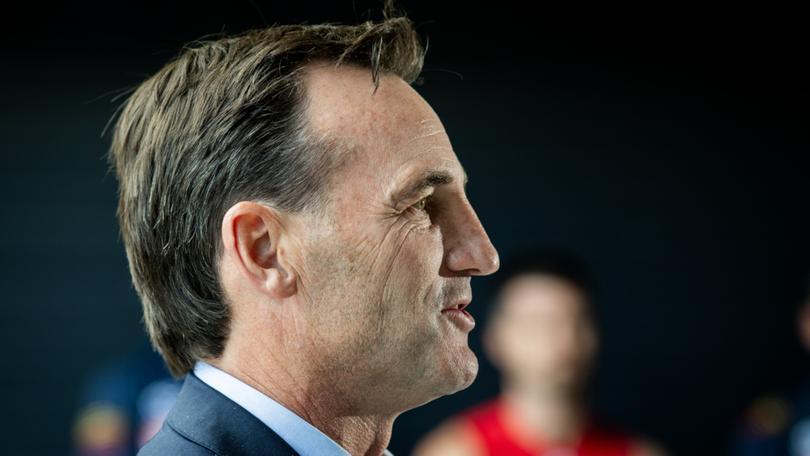AFL drugs policy potentially ‘breaches workplace law’, according to top lawyer

The AFL’s controversial drug testing regime potentially breaches workplace law and exposes the league to civil liabilities similar to concussion injury claims from former players, according to one of Australia’s top legal minds.
By allowing repeat offenders to keep playing and encouraging them to fake injuries to avoid official testing if they have drugs in their system, the AFL is arguably failing in its duty of care, says leading workplace lawyer Duncan Fletcher.
“It’s accurate to say the policy could be breaching workplace law,” said Mr Fletcher, a partner at Perth firm Kingston Reid.
Sign up to The Nightly's newsletters.
Get the first look at the digital newspaper, curated daily stories and breaking headlines delivered to your inbox.
By continuing you agree to our Terms and Privacy Policy.“For a football player the definition of workplace is becoming increasingly blurry, which means that the distinction between where work ends and private life starts is increasingly hard to define.
“The party for whom the person is performing the work, which could be the club and could be the AFL, has a duty by those players to be protected.”
The AFL’s drug testing policy has drawn national and international criticism since Independent MP Andrew Wilkie last month used parliamentary privilege to air details of widespread secret “off the books drugs testing” by clubs.
Under the testing regime, players who record positive results through urine testing are encouraged by clubs to fake injuries so they can avoid game-day testing by World Anti Doping Agency officials.
The AFL has refused to reveal how many players are involved in the “medical model”, describing it as a “handful” and saying it was focused on player welfare.
But Melbourne’s Herald Sun newspaper reported as many as 100 players across at least six clubs had been wound into the system.
Mr Fletcher said there was no difference between a football field and any other Australian workplace.
“You have fitness for work drug testing for employees that go to remote mine sites or who work in oil refineries, or big factories or other workplaces with machinery, where their fitness for work has an implication on their own safety and the safety of others,” he said.
“It’s hard to see a distinction between a big piece of machinery and a ruckman flying at you at speed on a football field.
“If you compare those workplaces where people put through pre-work drug testing are found to be not fit for work, they are usually given either zero tolerance in which case they are immediately removed from the workplace or their employment is terminated.
“Or in more tolerant workplaces there’s a process where there will be a number of strikes.
“They do that to stop people from repeating the process of not being fit for work and putting themselves or others at risk.
“I can’t see how in any way you can distinguish the football field as a workplace and it seems odd that this pre-work testing regime is open-ended.”
The revelations last month have drawn sustained public fire towards the game’s leaders, with former Australian netball captain Caitlin Bassett saying the system was “offensive to professional athletes across Australia” and former NBA player Andrew Bogut on Wednesday slamming the “blatant” substance use issues among AFL players.
“It’s quite obvious what’s happened — the AFL knew they had a problem with guys using drugs, so let’s just have them pull out with a sore hammy and dodge the testing that way,” he said.
“Anyone with half a brain can see why they’ve done it. They’ve obviously tried to move the chess pieces around to navigate a (WADA) policy they have agreed to abide by — because the carrot is federal government funding.
“Everyone knows what goes on in Melbourne. I’ve been to numerous nightclubs where the AFL guys are drinking a bottle of water and jumping around like crazy. I’ve been offered it (drugs) by AFL players and the fact that it has been kept under wraps for so long just shows how far the AFL tentacles can reach.”
Dick Pound, the founding president of WADA compared the AFL’s use of the loophole with the notorious doping tactics of East Germany and Russia in the 1970s and 1980s.
AFL chief Andrew Dillon said Mr Pound misunderstood the regime and said he was sensationalising the issue.
“He is way off the mark there,” Mr Dillon said. “They (his comments) are ill-informed and they are wrong but what I will say is that the open conversations that have come about as a result of some of this reporting, I think that’s important and we are up for conversation
Mr Fletcher said the policy exposed the AFL to future workplace claims, similar to those being pursued by former players alleging concussion injuries.
“If a player is injured, as we’re seeing from the movement of past players talking about legal action on concussion injuries as a result of game injuries, any of those matters could give rise to civil claims by individuals,” he said.
“With workplace safety regulators... there’s a convergence happening now where regulators are not just focused on obvious physical injuries, their concern is spreading into other areas and this is one of those areas where we’re on the horizon of new areas for new regulator interest.”

